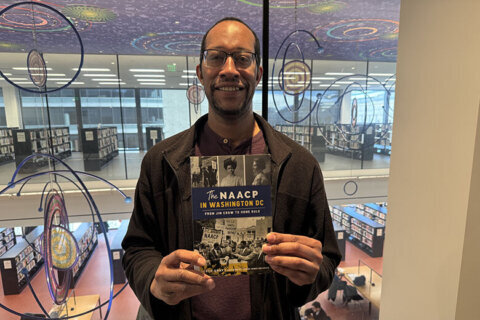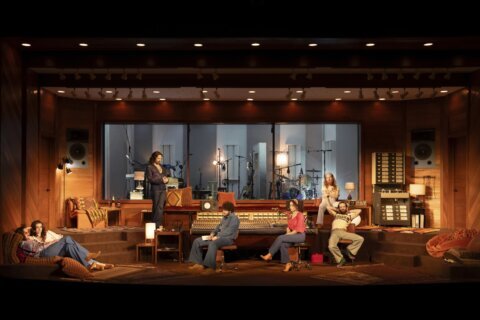Enforcement of the juvenile curfew pilot program in D.C. starts on Friday at midnight.
The youth curfew will be targeted in seven focus areas, including Chinatown and the U Street area. Under the program, D.C. police will be able to bring young people out after curfew to the Department of Youth and Rehabilitation Services until they can be reunited with a parent or guardian, according to D.C. officials.
The curfew hours run Sunday through Thursday from 11 p.m. to 6 a.m. and Friday through Sunday from midnight to 6 a.m. The juvenile curfew applies to young people under 17 years old.
Under the new program, any juvenile under 17 in the D.C. area in any public place or establishment will be committing an offense if they are in the seven focus areas.
“The goal is not to arrest young people,” said Deputy Mayor for Public Safety and Justice Lindsey Appiah. “We want them safe and off the street.”
She said the first step, if a juvenile is on the street violating the curfew, is to get them to go home or to identify who their parent or guardian is to get them to come and get them.
Then, they will take them to the Department of Youth and Rehabilitation Services instead of to the precinct, where they will assume custody until they can get safely home.
“It is not unusual for it to be hours of trying to get accurate information from the young person, figuring out where they live,” Appiah said.
The seven focus areas included in the Juvenile Curfew Enforcement Pilot cover the following areas:
- District 1: Chinatown and Navy Yard
- District 3: U Street area
- District 3: Howard University/Banneker
- District 4: 14th Street between Otis and Spring Road, NW
- District 4: 4000 Georgia Avenue, NW
- District 6: 4400-4600 Benning Rd, SE
- District 7: 1300 Congress Street, SE
How do residents and business owners feel?
Residents and business owners near U Street — one of the focus areas — had mixed feelings about the new policy.
On the one hand, some said they were worried about implementation and how it would work on a nightly basis.
“On the face, I don’t think it’s going to be a good idea,” said a resident named Kendall, who told WTOP she lives near U Street. “I don’t think it will be administered in a fair and neutral way. It’s just too one-size-fits-all.”
Long-time resident Laini Mataka also told WTOP she’s also worried about implementation, saying she’s worried about certain groups being targeted. She said she believes this policy to be “draconian.”
“It’s not gonna be of help to the young people,” she said. “They’re not thinking about the welfare of the young people.”
Mataka said rounding up kids caught past curfew up and into youth rehab centers isn’t the answer.
“A lot of them are still good at heart, but they don’t have any role models,” she said. “Behavior starts in the home. But who knows what could happen to them when they get stuffed into these buildings?”
“We need a different plan,” Mataka went on. “Let’s have a forum where the city is invited out to speak, and see if we can come up with a solution.”
On the flip side of the coin, business owners in the U Street area, who also live nearby, said they welcome this policy, and hope it cracks down on juvenile crime while cleaning up the streets.
“The curfew might be good for them,” said Ali Sharifi, who works at the retail custom tailor shop Sew in Style on U Street. “They might not see it now, but in the future, it’ll do something good for them,” he added, talking about the youth under 17 who would be affected by the curfew policy.
It’s an even bleaker story when you talk to business owners like Ahmed Mohamed, who’s headed up the popular restaurant Lupo Verde for 12 years.
“It’s happening every single night, especially on weekends,” he said, of crime in the area.
Mohamed told WTOP he said he’s had multiple incidents recently where juveniles passing by have thrown plates of food — and other miscellaneous items — at guests dining outside in his restaurant’s patio area.
“People don’t even want to eat on the patio anymore and are scared. The business is suffering,” he said.
“Especially after COVID, which was hard to come back from, this violence is really hurting us,” he added. “After 8 or 9 o’clock, it’s a mess. A big mess. So hopefully this will help.”
Mohamed said he’s not sure this policy is the definite solution — but added that something needs to be done to curb crime.
“If you’re asking me if this is gonna work, let’s just try!” he exclaimed. “What do we have to lose? If it’s a good idea, a bad idea … we’ll have to wait and see.”
WTOP’s Matt Small contributed to this report.









